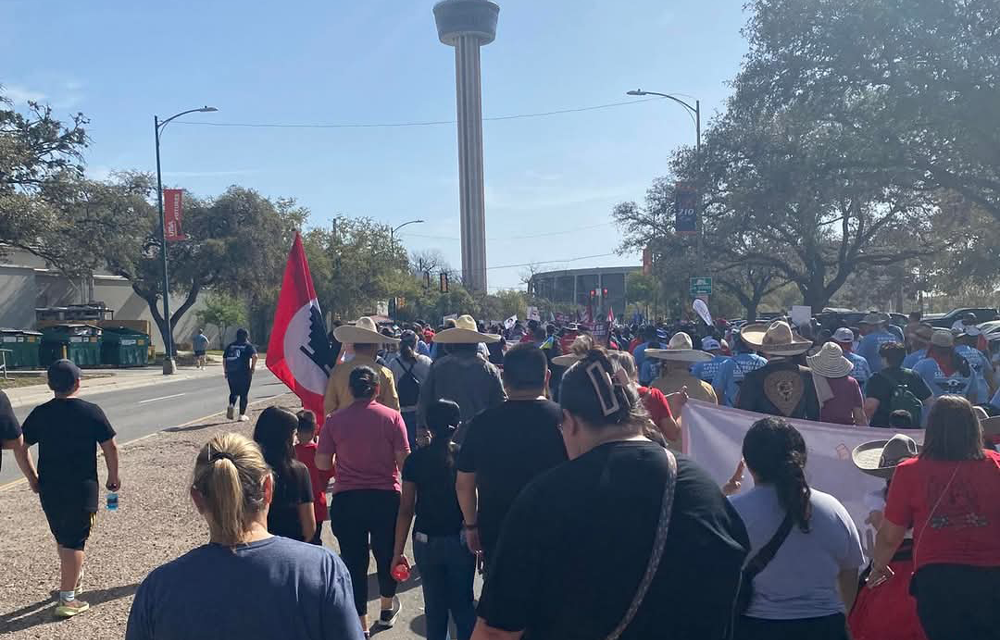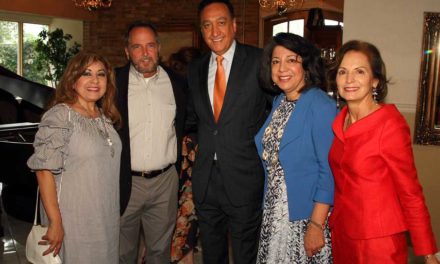San Antonio’s annual Cesar Chavez March is more than just an event—it’s a powerful reminder of the ongoing fight for justice, equality, and cultural preservation. This year, I had the privilege of speaking with inspiring individuals who embody the spirit of activism and community.
A Student’s Journey: Finding Identity Through Education
One of the remarkable voices I encountered was Marcella Hernandez, a student at the University of Texas, majoring in Mexican American Studies. Her passion for learning about her heritage began in high school, where she first discovered the subject.
“I had always struggled with my identity—being the lightest one in my family and not speaking Spanish,” Marcella shared. “My mother didn’t teach me Spanish because she feared how I would be treated. Taking Mexican American Studies helped me understand my identity, our history, and the struggles our community continues to overcome.”
Her activism led her to participate in the Cesar Chavez March for three years, first with her high school’s Mexican American Studies Student Association. Now, as a college student, she continues advocating for diversity, equity, and inclusion (DEI)—values she believes are under attack and must be protected.
“We need to embrace and acknowledge DEI, especially as our education system faces cuts that threaten our cultural studies,” Marcella emphasized.
Honoring Cesar Chavez: A Legacy That Lives On
I also met Manolo and Lucy Racueri, a devoted couple who, despite attending the march for the first time in person, have supported its mission for years.
“For me, Cesar Chavez is like a saint,” Manolo said, reflecting on the leader’s impact on labor rights and civil rights. Lucy echoed his sentiments, adding, “This march is a reminder of the fight we must continue for justice and equality, especially for our immigrant communities.”
As we discussed the challenges faced by marginalized groups, Manolo pointed out a sign that resonated deeply with him: “Nobody’s illegal on stolen land.” The phrase struck a chord, emphasizing the broader historical context of the fight for immigrant rights.
Lucy, who has lived in San Antonio for 57 years, has witnessed firsthand the injustices that persist in society. “We have to keep fighting, or things won’t improve for our future generations,” she said passionately.
The Power of Unity and Action
The Cesar Chavez March is more than a tribute—it’s a movement. It’s a reminder that we must stand up, rise, and continue advocating for justice.
“I never knew we had two Latino astronauts who went to space,” I admitted during my conversation with Marcella. “All I ever learned about was Neil Armstrong. Our history has been whitewashed, and we must fight to preserve it.”
Marcella agreed, mentioning her research on the connection between Cesar Chavez and Martin Luther King Jr. “MLK sent Chavez a telegram, calling him a brother in the fight for equality,” she revealed. Yet, this crucial history is rarely taught in schools.
Moving Forward: A Call to Action
The Cesar Chavez March is a powerful symbol of resilience, reminding us that the fight for fairness is far from over. From students like Marcella to lifelong activists like Lucy and Manolo, each voice adds to the collective call for justice.
“Equality, unity, and peace for our people and culture—that is what we march for,” I concluded. And with every step, we honor the legacy of Cesar Chavez, ensuring that future generations continue the fight for a better tomorrow.
Viva la causa!







